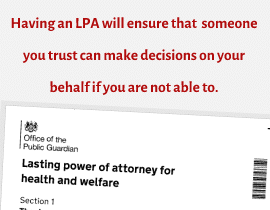Discretionary Trusts
Discretionary Trusts
A Discretionary Trust is a trust that gives the trustee or trustees discretion to pay the beneficiary or beneficiaries as much of the trust income and or capital, as the trustees believe appropriate. There is only one category of beneficiary which Countrywide name as being Potential Beneficiaries.
There needs to be a number of Potential Beneficiaries, rather than just one, so as to ensure there is discretion as to who could benefit from the Trust Funds. Given that the beneficiaries are only potential beneficiaries, none of the Trust Funds are deemed to be in any of the beneficiaries’ estates.
This means that, on the death of a potential beneficiary, the trust funds would not impact their estate for Inheritance Tax purposes.
Rather than using Discretionary Trusts set up via a Will, you could decide to use a Pilot Trust (also known as a Family Trust) to receive assets up to the available Nil Rate Band.
A Pilot Trust is a Trust established today with £10, which can receive further assets in the future. The Pilot or Family Trust is a Discretionary Trust established today, which will receive up to the available Nil Rate Band upon death, as directed from the deceased’s Will.
Depending on the estate size and type of assets, typically if over the Nil Rate Band, further Pilot Trusts maybe need to be established, to provide even greater asset protection and tax efficiency.
Management of the Pilot Trusts enables us to reduce future periodic and exit charges, tax charges which cannot be managed efficiently with Discretionary Will Trusts.
The Discretionary Trust provides us with flexibility, in that any beneficiary from a wide list of categories e.g. Spouse, children, grandchildren can benefit at the Trustees discretion.
The Settlor of each Trust leaves a Memorandum of Wishes for the Trustees to follow after their death and this ensures monies are used for the appropriate beneficiaries. However, the maximum that can be directed to the Discretionary Trust upon death is the Nil Rate Band. Should any assets above this value enter and remain in the Trust, 40% will automatically be charged to the assets above the Nil Rate Band, upon first death.
By directing up to the Nil Rate Band to our Family Trust, assets can remain under the control of the surviving spouse rather than the children, this prevents any problems in terms of access and use of funds, our strategies ensure you retain total control of the Trusts.
One of the Trustees of the discretionary trust will often be the surviving spouse. Appointing a professional trustee is almost always advisable. It is wise to have at least two Trustees.
The beneficiaries of the trust will usually be the surviving spouse, the children and grandchildren.
Should the surviving spouse require capital or an income, the trustees can appoint money to him/her as required. However, as the spouse benefits only at the discretion of the trustees, the value of the trust property will not be included in the survivor’s estate and inheritance tax is thus saved on second death.
It is quite clear who can benefit from the Trust and indeed who is not entitled to the Trust Funds. Claims cannot be made to the Trust Funds by estranged partners or creditors. Local Authorities cannot include Trust Funds as part of estate values for those needing care.
In addition to this, a second step of strategy is advised and further Trusts are needed for assets above the Nil Rate Band which are part of the estate at the time of death.




